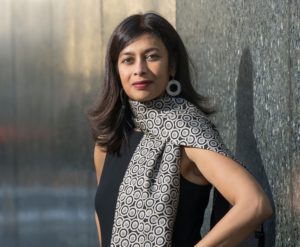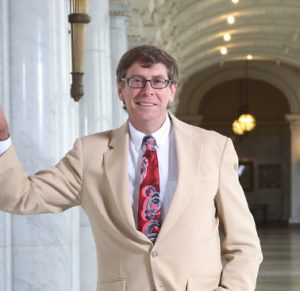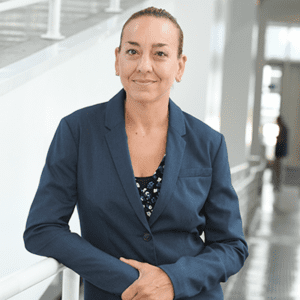UC Law SF Professors Talk Future of Abortion Rights After Supreme Court Leak
In a series of panel discussions this week, UC Law SF professors spoke about what could happen in the U.S. if Roe v. Wade is overturned, a week after a leaked Supreme Court draft opinion sent shockwaves through the nation.
Hastings law professors – who are experts in constitutional rights and health law – said the leaked draft penned by Justice Samuel Alito could do more than let individual states outlaw abortion. It could also lay the groundwork for banning the procedure nationwide or abolishing other rights, such as the right to marry same-sex partners.

Professor Radhika Rao
Professor Radhika Rao, an expert in constitutional law and reproductive justice, clerked for the late Justice Harry Blackmun, author of the opinion in Roe that established a constitutional right to an abortion.
Speaking at a May 9 panel discussion, Rao warned that if some language in Alito’s draft becomes final, it could provide a legal basis for turning back the clock on other rights.
“The right to marriage is nowhere mentioned explicitly in the constitution,” Rao said. “And the right to sexuality, the right to choose your sexual partner, to have intimate relations – none of that is protected in the text of the constitution.”

Professor Rory Little
Professor Rory Little, an expert in constitutional law, also said during the May 9 discussion that he found major flaws in Alito’s reasoning. For instance, Alito rejected arguments that the Equal Protection Clause supports abortion rights, stating in a single paragraph that such arguments were “squarely foreclosed” by court precedent.
“The irony of saying an argument is foreclosed by precedent in a 67-page opinion where you are overturning a nearly 50-year-old precedent that has been reaffirmed ever since … He doesn’t even see this is an irony. That’s a stunning problem,” Little said.
Alito wrote that his draft opinion should not be read as threatening any Supreme Court decision published before Planned Parenthood v. Casey in 1992. Little pointed out that Alito said nothing about post-Casey decisions that gave same-sex couples the right to marry and banned laws that criminalize sodomy.
“He just leaves that out,” Little said. “By implication it’s pretty clear what he thinks.”
Professors also discussed the draft opinion and its potential impact at a May 11 panel talk sponsored by the UCSF / UC Law SF Consortium on Law, Science and Health Policy.
In that discussion, UC Law SF adjunct professor Beth Ribet – a legal scholar and expert on race, gender and disability issues – said Alito based his argument on the notion that rights must be clearly written in the constitution or deeply rooted in American history.
“He’s not engaging at all with the fact that the deep roots of American history have involved tremendous inequality,” Ribet said.

Professor Jennifer Oliva
Jennifer Oliva, a health law and policy expert who will join the UC Law SF faculty this summer, explained what would happen if the Supreme Court were to adopt Alito’s draft opinion.
“There would be no federal constitutional right to abortion under any circumstances,” Oliva said. “States would be permitted to choose at what point in pregnancy to ban abortion, including enacting total and complete bans.”
Oliva also warned that Alito’s opinion could open the door for states to try to ban emergency contraception like the Plan B pill.